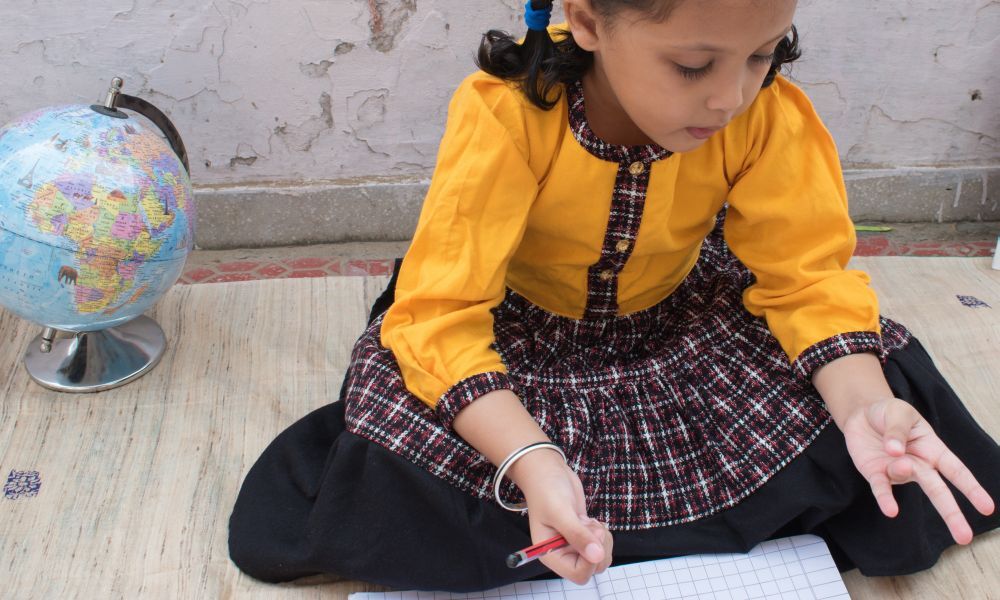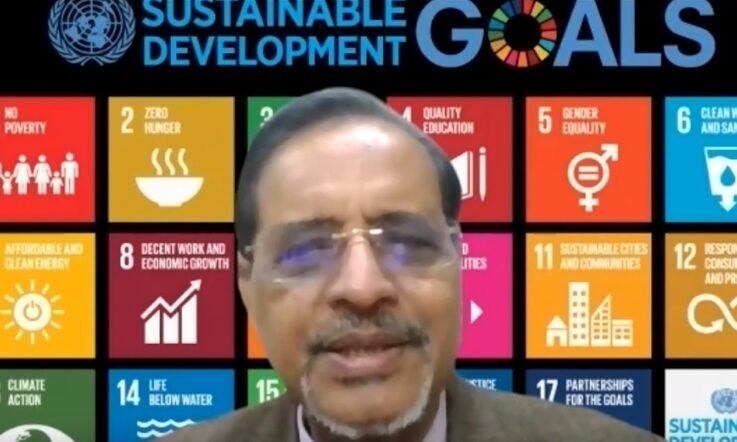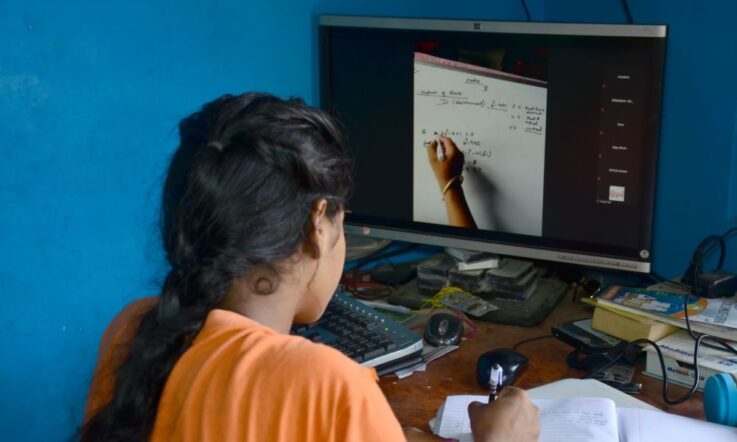In India, we have children who are first-generation learners and do not have an environment of literacy and numeracy at home. The Foundational Literacy and Numeracy (FLN) mission has been set up under ‘Samagra Shiksha’ – an integrated school education scheme covering preschool to senior secondary level.
The intent is to systematically tap the first 8 years of a child’s life under the National Initiative for Proficiency in Reading with Understanding and Numeracy (NIPUN) to build literacy and numeracy skills with understanding through a play and activity-based approach.
Policymakers acknowledge that investment in this phase of a child's life will lay a strong foundation for lifelong wellbeing and overall growth and development across all physical, cognitive and socioemotional domains. Research also demonstrates that children under 8 do not follow linear age-based educational trajectories. Even after age 8, non-linearity and varied paces remain inherent characteristics of learning and development.
India’s National Education Policy (2020) stipulates that, between the ages of 3 and 8, appropriate and high-quality early childcare provided in institutional settings such as preschools must be available to all children. The Central Government has written to all the State Governments to implement it in the children's best interest. The Central Board of Secondary Education (CBSE) will soon roll it out in its 28,000+ affiliated schools.
The importance of good foundations
India has taken the FLN in all earnestness since the release of the NEP 3 years ago. The policy highlights the importance of FLN:
'The ability to read and write, and perform basic operations with numbers, is a necessary foundation and an indispensable prerequisite for all future schooling and lifelong learning. However, various governmental, as well as non-governmental surveys, indicate that we are currently in a learning crisis: a large proportion of students currently in elementary school – estimated to be over 50 million in number - have not attained foundational literacy and numeracy, i.e., the ability to read and comprehend introductory text and the ability to carry out essential addition and subtraction with Indian numerals.' (NEP, 2.1)
In its recent draft, the National Curriculum Framework (NCF) for India further highlights the need, scope, and curricular approach of FLN in the context of the country’s multilingualism and not-so-focused approach to FLN in the past decades. The NCF draft asserts that, due to a lack of adequate attainment in FLN, students find it challenging to achieve further higher mathematics learning.
Proficiency in foundational literacy and numeracy for all children must become a primary national mission and a central goal of the Foundational Stage curriculum. The draft NCF reads, ‘At both the foundational and higher stages, mathematics learning has traditionally been more “robotic” and “algorithmic” rather than creative and aesthetic. This is a misrepresentation of the nature of mathematics and must be addressed in the school curriculum.’
Pedagogy, assessment and equal participation
The policymakers add, ‘Some unfortunate practices have discouraged many girls from pursuing mathematics. Girls possess abilities in mathematics equal to boys and must be given equal opportunity to pursue mathematics and equal participation in the processes of mathematical discovery.’
In pedagogy, there is a recognition that new mathematical concepts are difficult to absorb in young children when these concepts are separate from students' home experiences and languages. Textbooks, classroom activities, and examples should be connected to and related to students' lives and presented in students' home languages whenever possible. Mathematical vocabulary should additionally be given in students' home languages in cases where the medium of instruction is different from the student's home or most familiar language.
Assessment methods, too, have encouraged rote learning and meaningless practice and thus promoted the perception of mathematics as mechanical computation. Assessment must move towards testing accurate understanding – i.e., core mathematical capacities and competencies – rather than mechanical procedures and rote learning.
Unfortunately, many students in the current system have developed a real fear of mathematics – a result of non-optimal teaching methods involving lectures, rote learning, and meaningless practice, rather than interactive learning involving games, activities, and discussions emphasising the creative side of mathematics. Countering this fear of mathematics would require a shift in teaching and learning methods.
Sharing best practice from around the world
In this context, the G20's 4th Education Working Group meeting was recently held in Pune, with ‘Ensuring Foundational Literacy and Numeracy, especially in the context of blended learning’ as its central theme. The seminar focused on:
- Teaching Learning approaches and pedagogy for FLN in blended mode.
- Role of Parents, Caregivers and Community Members in Supporting FLN.
- Capacity building and training of teachers for FLN in the context of multilingualism.
Many countries with proven track records in FLN – including Spain, Australia, UAE, Indonesia, South Africa, USA, China, and the UK – shared their best practices at the working group meeting. The Indian participants, mainly the policymakers present, shared their experience of successfully implementing FLN.
Where to from here?
The NCF very clearly draws a road map linking the broad aims of education to curricular goals, competencies and learning outcomes. There are 13 curricular goals and 67 competencies under 5 domains at the Foundation Stage: physical development, socio-emotional and ethical development, cognitive development, language and literacy development, and aesthetic and cultural development. Developing positive learning habits is also a relevant goal at this stage.
Building a positive relationship between teachers and children is critical to optimal learning and growth at the Foundation Stage. Healthy and positive conversations (children love it), storytelling, toy-based learning, songs and rhymes, music and movement, art and craft, indoor and outdoor games, nature walks, and field trips will be used as pedagogical tools to enrich teaching and learning experience and develop a love for learning among the students.
The implementation will be challenging given the size, diversity, multilingualism, and shortage of trained Foundation Stage teachers and teaching-learning materials. The good news is that 2023 is a rollout year for the Foundation Stage, and many of India's states have already taken the lead in walking the FLN talk.



